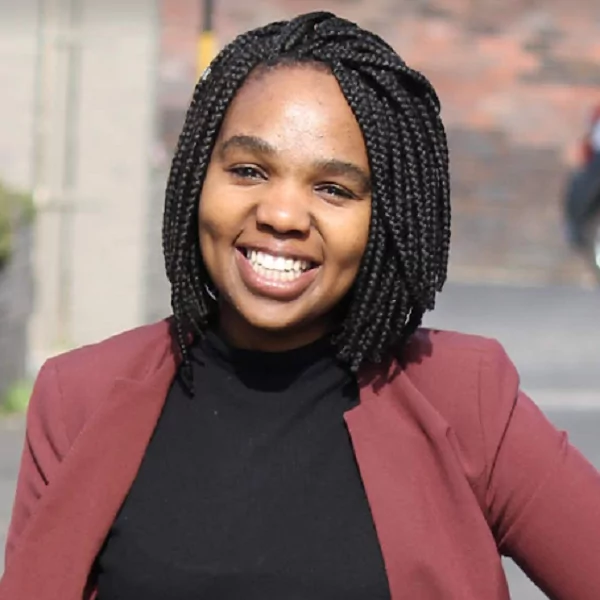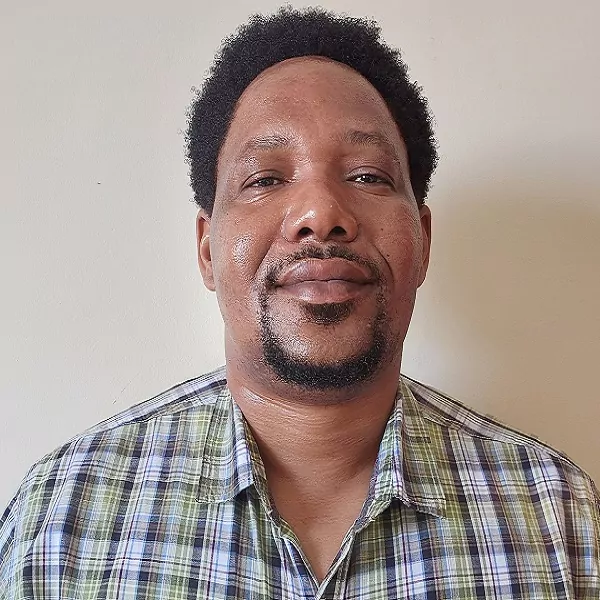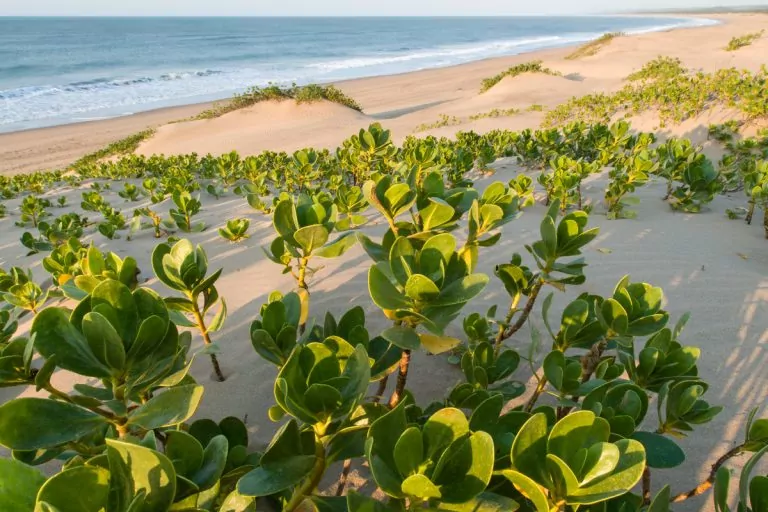Feature
Vision 2030 – The Future of Ocean Conservation
Ocean Science for Sustainable Development
George Rushingisha has returned from Mozambique to his workplace at the Tanzania Fisheries Research Institute (TAFIRI) in Dar es Salaam and is preparing to present the current selection state of fish stocks to the Livestock and Fisheries Minister. “Good data are crucial to understanding the current state of our fish stocks,” he emphasizes, “and for Tanzania to work toward reaching the SDG 14.4 target. So it is my job to ensure that we produce reliable data on fish stocks in the WIO region, so that our government can make decisions that are informed by science.”
Despite efforts over the past years to improve society’s understanding of the ocean and its symbiotic relationship with humankind, we still know a lot more about the status and changes of biodiversity on land than in the ocean. Only in the past decade, it has become clear that not enough progress was being made towards achieving SDG14.
The Science we need for the ocean we want
Further south in Cape Town, South Africa, Aphiwe Mtetandaba is busy at her computer at the South African National Biodiversity Unit (SANBI), processing empirical ocean colour remote sensing satellite data to support the effective management of coastal estuaries through marine spatial planning that facilitates better land-sea integration. “The data are there, but we are lacking infrastructure to implement them and compare them to other scientists’ work. Sometimes scientists are doing the same work in different projects, because we do not share our findings across projects and national boundaries.”
Ocean Science 2030
As young scientists like Mtetandaba and Rushingisha amplify their voices, they are beginning to be heard outside of the stifling silos of insular research projects – an effort that is boosted by the UN Decade of Ocean Science for Sustainable Development.
But for ocean science to have the appropriate impact, research findings must translate into actions. Looking towards 2030, how do researchers envision science to be conducted and applied to stop the destructive exploitation that the ocean had to endure at the hands of humankind?
To gather some visions of the science we need until 2030, the MeerWissen Initiative has asked ocean researchers at different career levels to identify how they envision ocean science in the UN Ocean Decade.
Ocean science for sustainable development
There still aren’t not enough reliable data and monitoring systems in place to track the state of the ocean’s health and effectiveness of conservation measures. In 2017, IOC-UNESCO published the Global Ocean Science Report (GOSR), the first global effort to develop a comprehensive methodology to report on the SDG indicator 14.a.1, which measures the “increase in scientific knowledge, research and technology for ocean health”. The report concluded that to reach the targets set in SDG 14, data, knowledge, and capacity require a sharp boost to sustain the ocean as the lifeline of our planet. As part of the UN and UNESCO’s ongoing efforts to measure and monitor progress in science-based ocean conservation, the second GOSR was published in 2020, providing a record of the status and progress of ocean conservation. A further report is scheduled to be released around 2025, charting global progress at the halfway mark of the Ocean Decade.
The UN Ocean Decade aims to advance marine research efforts and apply the results towards a more sustainable use of the ocean’s space and resources. Until 2030, the Intergovernmental Oceanographic Commission of UNESCO (IOC) will coordinate the Ocean Decade Actions – programmes, projects, and contributions, and promote the development of knowledge-based solutions to tackle the existential challenges of our time, such as biodiversity loss, climate change, and poverty. Through global partnerships and large-scale programmes, including for observation and monitoring of Essential Ocean Variables, the Ocean Decade aims to reshape humanity’s relationship with the ocean, increasing society’s knowledge and appreciation of the ocean’s valuable resources and their potential to improve our livelihoods. As Dr. Vladimir Ryabinin, Executive Secretary of IOC-UNESCO, claims: “We must make people realise that we are actually living on Planet Ocean, not just Planet Earth.”
Why is Ocean Science VITAL for Sustainable Development ?
“Humankind is taking the ocean for granted. And this is no longer viable. So, until 2030, we need to understand where we are, measure and monitor the state of the ocean, and systematically promote the role of ocean science. More fundamentally, we need a paradigm change in why and how science is made. In terms of why we do science, we need to go from a science driven by individual curiosity to a science oriented by a desire to provide solutions to the great challenges of our day and age, all of which are encapsulated in the UN 2030 Agenda for Sustainable Development. In terms of how we do science, we need to break the disciplinary silos, and promote a science that is co-designed with users and policymakers towards sustainable management of the ocean. Failing that, we risk being stuck in business as usual.”
Dr. Vladimir Ryabinin, Executive Secretary, IOC-UNESCO
Funding
Sustainable funding provides the basis upon which research can generate knowledge and deliver tools for governments to reach the SDGs and the Ocean Decade goals. Dr. Jaqueline Uku, Research Coordinator of the Kenya Marine and Fisheries Research Institute and former President of the Western Indian Ocean Marine Science Association (WIOMSA) advocates for long-term research projects with continuous funding. “We need to dig deeper. What has the past shown? And can we model the future? Because with big datasets and long-term trend data, you can tell a full story that is comprehensive enough for policy.” Long-term funding also guarantees job security for young scientists like Aphiwe Mtetandaba, who lack opportunities to develop their expertise to become tomorrow’s ocean science pioneers. “Sometimes, we jump from one job to another,” Mtetandaba explains. “Long-term projects and more funding would enable me to thrive as a marine scientist in a stable working environment.”
Role of young generation
“I call on financial backers to support this young generation. They are the future senior researchers, decision makers and communicators, but they need to be guided by their experienced peers. And through that we can take on board their contribution to achieving the objectives in 2030.”
Dr. George Rushingisha, TAFIRI
Education for Ocean Literacy
Ocean science cannot have a conservation impact if the people in governments and communities do not understand that a healthy ocean is vital to our survival as humanity. To achieve this, ocean knowledge must be accessible to everyone. As Mtetandaba points out, the level of ocean literacy in South African public schools is considerably lower than in privileged private schools. Ocean literacy is essential for achieving the UN Ocean Decade goals, according to Mtetandaba. “If we can educate people and get them involved in science-based ocean conservation, they can take on responsibility for their actions. And they will also be able to make better decisions about how to take care of this ocean that we love so much.”
Accountability
“Governments are responsible for managing their countries and the earth. Environmental management is becoming more and more science intensive, and it means that in the search of adequate policies governments will have to rely on and listen to the best science. And I think if we move forward with science and start properly managing the ocean, the benefits will accrue also on land.”
Dr. Vladimir Ryabinin, Executive Secretary, IOC-UNESCO
Sustainable Blue Economy
Sustainable development must not come at the expense of economic growth, especially in developing countries. Governments implementing science-based polices must perform a delicate balancing act to consider the conservation of their nation’s natural resources as well as the economic prosperity of a nation and the wealth of its people. Mtetandaba is aware of this issue and stresses the responsibility of scientists to engage with people whose lives rely on the ocean’s resources: “We as scientists need to come to the people and understand what is really happening in the communities – they depend on these oceans, on these areas that are now protected, and now they can’t go fishing. Whereas their families, they suffer.”
Sustainable Blue Economies aim to achieve a productive partnership of utilising the ocean’s resources that is effective and bears long-term benefits both for the economy and for ocean conservation. Aboud Jumbe, Principal Secretary in the Ministry of Blue Economy and Fisheries in Zanzibar, is basing Zanzibar’s Blue Economy strategy on science as a former marine researcher. “A Sustainable Blue Economy requires the right fuel ingredients – solid, long-term data that is translated into understandable language,” says Jumbe. “Without these fuel ingredients, we will continue to struggle to reach SDG 14, and neither will we create sustainable economies for the future of our people’s livelihoods.”
Value chain of ocean science
“We have re-energised the various fields of ocean science, but now we have to start making it all work together, implementing the whole value chain of ocean science, from observations and research to predictions and warnings, assessments, to advances in the science – policy – society interface, and without leaving anyone behind. With the notion of economy involving climate-smart and science-based sustainable ocean management, we will set our sail towards the ocean we want.”
Dr. Vladimir Ryabinin, Executive Secretary, IOC-UNESCO
Visions of Ocean Science, 2030
2030, South African east coast:
Aphiwe Mtetandaba leads a group of keenly chatting school children along the estuary she has studied over the past years and points out sections of the coast where effective spatial management allows marine wildlife to flourish while local fisherfolk are fishing responsibly to secure their livelihood. “We have to be able to translate our research into an understandable format,” she is convinced. “This bridges the gap between science and the communities and is the key to building trust between them.”
In the meantime, George Rushingisha is hard at work in Dar es Salaam, amid preparations to launch the first open-access global database of large-scale ocean science research conducted during the UN Ocean Decade. “We need to be in a position that all the decisions that we are taking are informed by science,” he emphasises. “This requires the mutual sharing of data and long-term research projects that are accessible to all scientists and decision-makers.”
The Science We Need for The Ocean We Want
Such visions of ocean science in 2030 can come true. Scientists at various career levels are full of ideas and are already looking beyond the status quo. Yet there is still a long way to go in the co-ordination and funding of ocean science. SDG 14 is the least funded of the 17 Sustainable Development Goals, and Dr. Ryabinin estimates global funding of marine science to be merely one per cent of the economic return generated from the ocean.
Across the world, people must listen and act today, and governments must support the scientists laying the groundwork for a co-ordinated marine conservation effort across the world.
As Dr. Ryabinin postulates:
“We must produce the science we need for the ocean we want.”
Aphiwe Mtetandaba

Dr. George Rushingisha

“I call on financial backers to support this young generation. They are the future senior researchers, decision makers and communicators, but they need to be guided by their experienced peers. And through that we can take on board their contribution towards achieving the objectives in 2030.”
→ FIDEA

